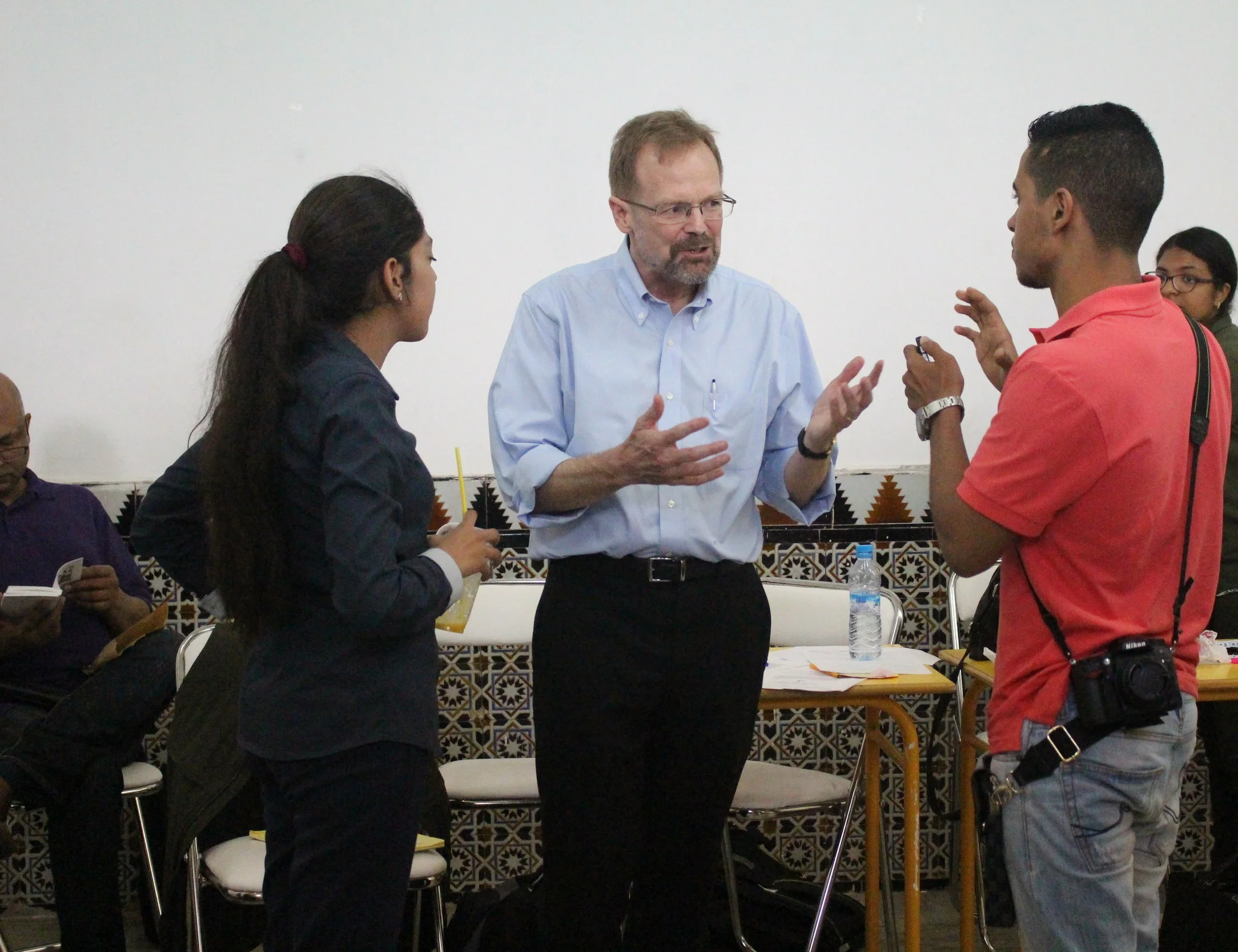Photo: Kelly Bedeian
foreword
To what do I belong? This was the question posed to writers from around the world who gathered in May 2017 in Tangier, Morocco, for a conference in the American Legation—a Moorish-style building that served as a diplomatic outpost for 140 years, the longest tenure in U.S. history. This complex was also America’s first diplomatic property acquired abroad, the gift of Sultan Moulay Suliman in 1821 to celebrate the 1786 Morocco-American Treaty of Friendship, which remains in force today. And it was in the spirit of friendship that alumni of the International Writing Program (IWP) discussed new ways of telling stories to counter the eruption of extremism created in part by the inadequacy of prevailing narratives of belonging and inclusion.
Family, friends, region, tribe, religious denomination, ethnic groups, class, gender, race, work, neighborhood, country, political parties—in our daily lives we navigate between different markers, adjusting our speech patterns and behavior to the demands of each encounter, narrating to ourselves stories about how and why we come to occupy a particular place in the scheme of things. Poets and writers, playwrights and filmmakers, all specialize in translating these private narratives into public discourse. What surfaces in their imagination is designed to reach broad audiences, and their stories can shape the very ways in which societies view themselves. The IWP thus hosted ten writers for discussions on the nature of communities, a writer’s obligations, and the constraints of form, rooted in draft essays distributed to the group before the symposium, along with readings germane to the subject and to the city of Tangier. For we had come to a mythical place in the literary imagination, an ancient port at the entrance to the Strait of Gibraltar, which has long served as a meeting point for merchants, diplomats, adventurers, spies, artists, and writers; from the fourteenth-century Moroccan explorer and scholar Ibn Battuta to the twentieth-century American traveler, composer, and fiction writer Paul Bowles, writers in particular have found in this fabled setting inspiration for new works, and so it proved to be for us.
What follow are reworked versions of the essays discussed in Tangier, all of which gained immeasurably from the lively back-and-forth that characterized our conversations. Testing one’s ideas in the company of a diverse group of gifted writers can be by turns exhilarating and humbling, and I was struck over and again by the writers’ determination to probe and tease out meaning from what at first glance might seem to be an inconsequential phrase but which upon reflection yielded important insights. In the magnetic field of this encounter, everything seemed to hold a charge that might spark a deeper understanding about this fraught moment in history. The light emanating from the works collected here may well guide readers to travel farther than they imagined possible. Think of this as a series of journeys into the heart of what it means to be alive today—a reckoning, if you will, from all corners of the globe, which seems to spin ever faster.
acknowledgements
We appreciate the assistance of the following people and institutions in preparing the conference in Tangier, and for the teaching opportunities in Morocco that followed:
At the Bureau of Educational and Cultural Affairs, US Department of State
Jill Staggs
Jay Raman
At the US Embassy in Rabat, Morocco
Erica Thibault, Cultural Affairs Officer
Loubna Arrach, Alumni Coordinator, Public Affairs Section
At the Institute for Moroccan Studies
John Davison, Director, TALIM - Tangier American Legation
TALIM guest speaker: Hisham Aidi, Columbia University
At the American Language Center, Tangier
Mark Holbrook, Director

